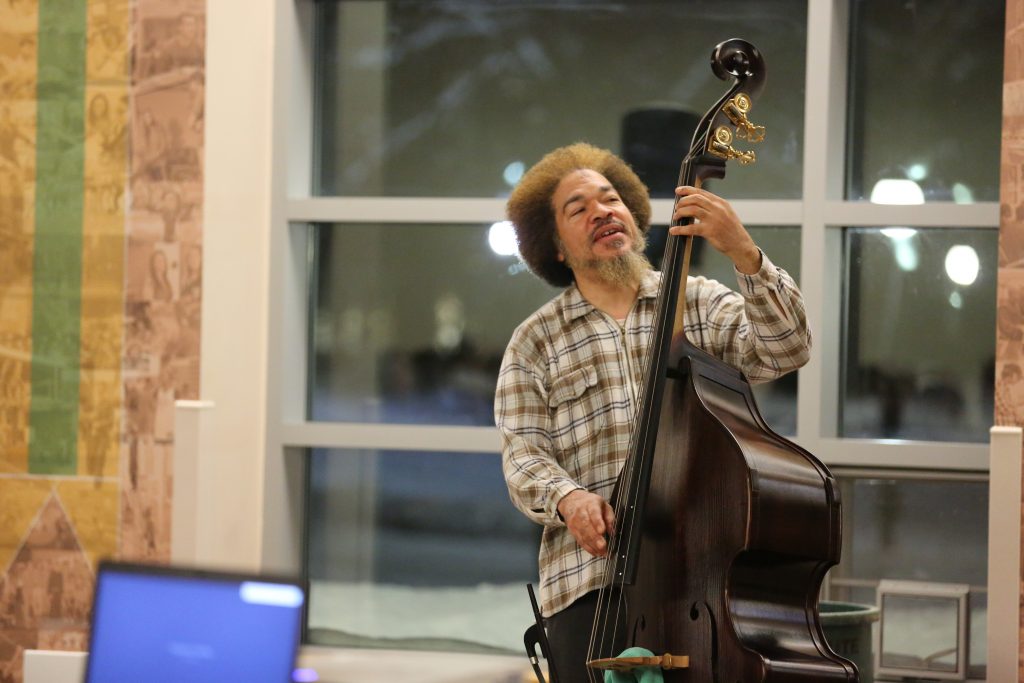
Last Wednesday evening, the Maloney Great Room was filled to near capacity as students and faculty came out to attend The Sociology Film & Speaker Series. This segment of the series featured a film screening of the documentary The Isis Trial-No History of Violence by filmmaker Ellie Bernstein. The film followed the journey of a group of young American-Somali boys, all with no history of violence, who were convicted of terrorism in 2016. After the screening, attendees held a lively discussion with expert panelists about their own experiences with preemptive arrest and imprisonment.
The event was opened up by Tarik Shah playing the base as the audience situated themselves for the evening. Once the film began, the room grew silent as the story of controversial FBI investigations on Somali Americans unfolded. The main focus points of the documentary included the backstories of the individuals that were arrested, how community efforts to decrease ISIS affiliations were flawed, and an analysis of the tactics used by the FBI throughout the case.
Starting off the discussion was attorney Steve Downs of Project Salaam who has a great deal of experience dealing with such cases. He gave the audience a brief overview of what preemptive arrest and imprisonment looks like from a wider legal context. This idea of being arrested without committing a crime is not new to panelist Abu Horayra Hossain whose father was preemptively arrested when he was just a child. Similarly to the Somali boys presented in the film, Abu expressed that, in his dad’s case, “There was not really any evidence because he never really did anything.” Both Steve Downs and Abu Horaya Hossain provided the crowd a small look into the issue of Muslim Americans being targets for being accused, investigated, and incarcerated without committing any crimes.
Set up in an FBI sting operation, the next panelist, Tarik Shah, spent 13 years in prison after being convicted of conspiring to provide aid to a terrorist group. He discussed the horrors of living in solitary confinement such as always being under surveillance and enduring freezing cold temperatures in his cell. Expressing that he never had any intent to join a terrorist organization and was a victim of entrapment, Tarik noted that he is not bitter about his wrongful conviction. He wants to see a change in what is occurring and stated that “Change can only happen through a lot of brave people.”
The director and producer of the film herself, Ellie Bernstein, was also on the panel but made it clear that she wanted the real-life experiences of the other speakers to take priority. She did conclude the night by letting the audience know that how completely daunting the specific case showcased in her documentary still feels to her to this day.
If you missed out on the Sociology Film & Speaker Series and have an interest in the criminal justice system, human rights, or community development, I highly recommend checking out the film The Isis Trial-No History of Violence. Co-sponsors for this event were the Sociology Department & Criminal Justice minor, the Damietta Cross-Cultural Center, The Fair Trade and Social Justice Committee, the School of Liberal Arts, the Education Department, and the Multicultural Studies Minor.